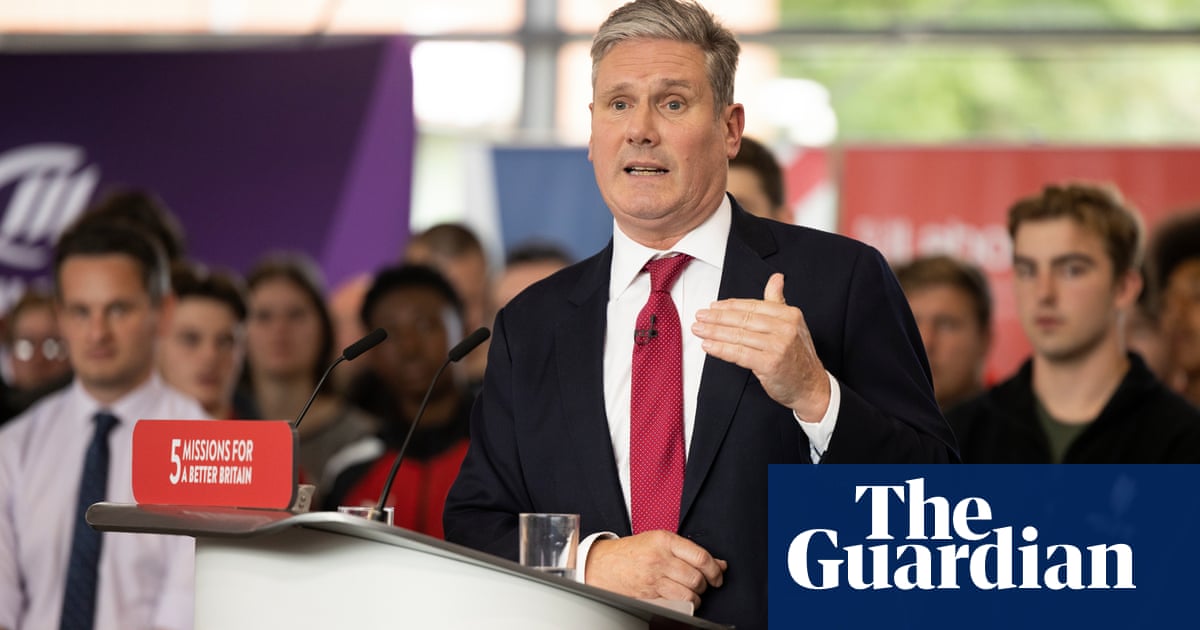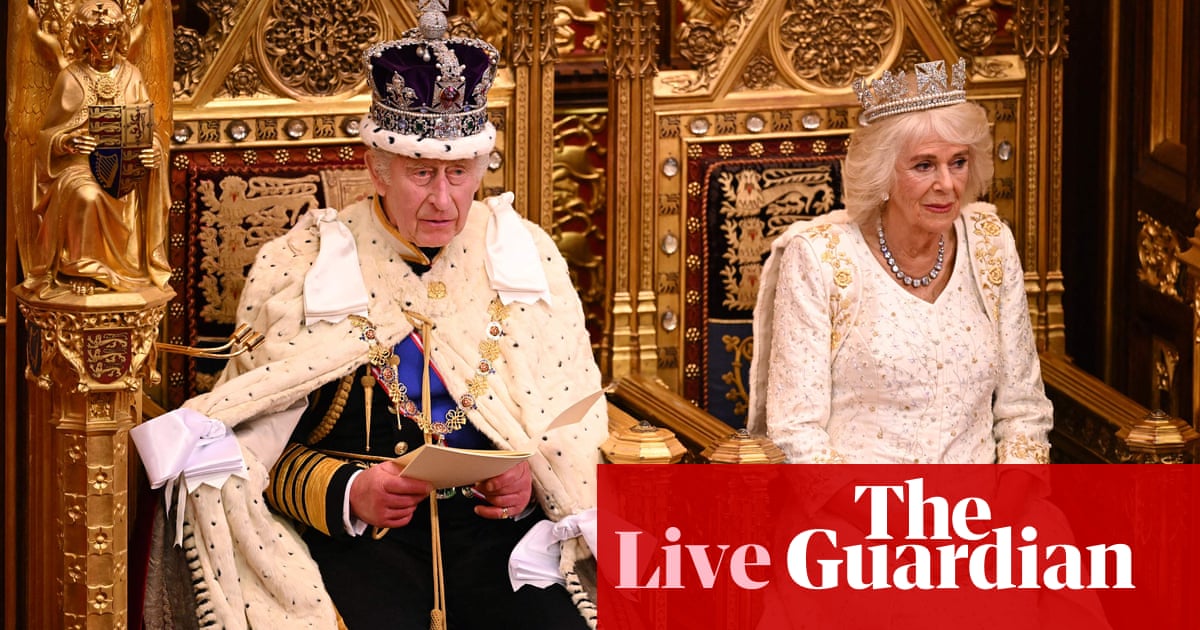
A Labour government would focus on ending poverty just as strongly as Tony Blair’s 1997 administration, Keir Starmer has said, as he set out the last of five self-declared missions, based around education and opportunity.
Pledging to break the “class ceiling” on mobility by measures including a school curriculum revamped to reprioritise creative skills and speaking ability, Starmer also warned that a Labour government would be “constrained” by economic realities.
Speaking to a mainly young audience at a college in Gillingham, Kent, Starmer was briefly interrupted early in the address by two activists from Green New Deal Rising, who shouted that he had U-turned on green policies, something Starmer rejected.
Asked after the speech why none of his five missions set out in recent months were explicitly about reducing or eradicating child poverty, the latter of which was one of Blair’s stated main ambitions, Starmer said targeting poverty was “the foundation on which these missions sit”.
“The resolve to deal with poverty will be just as great in an incoming Labour government as it was in the last Labour government,” he said.
“Let me acknowledge the role that poverty plays in this, and just as the last Labour government was laser-focused on poverty, so will any incoming Labour government.”
The speech set out five areas in which a Labour government would try to improve life chances for all and social mobility, something Starmer described as “my personal cause”, given his background as the first person in his family to attend university.
As well as improving housing security and vocational training, and overcoming what he called “the soft bigotry of low expectations”, Starmer also set out ideas on more creativity in the classroom, and helping young people speak more confidently.
On the former, he said “an outdated curriculum” was not equipping students with the creativity they needed for the artificial intelligence age. Hitting out at what he called “the new fashion that every kid should be a coder”, Starmer said all pupils would be required to study a creative subject, or sport, to 16.
On speaking, he said new policies, including in early years, would focus on “oracy”, the ability to express yourself clearly and confidently, calling this a vital life skill.
Quizzed about the continued lack of most specific policy details amid the missions, a common grumble among some Labour MPs, Starmer said it was a deliberate choice to create a structure for government that was “purpose driven”.
He said: “The whole point of these missions is these are the five things that matter most. This is a change that you can expect to see after five or 10 years of a Labour government, and when it comes to political decisions, we will prioritise the missions over other things.
“Frankly, if we’d had anything like the strategy and certainty that I’m setting out now, over the last 13 years, we wouldn’t be an utter mess that we’re in.”
Questioned on fiscal issues including teachers’ pay, free school meals and Conservative policies such as the two-child benefit limit, Starmer said policies on these would come closer to an election – but also warned that a Labour government would be somewhat limited in what it could do given the state of the economy.
“We are constrained,” he said. “I’ve said this a number of times now, that the economy that we inherit if we are privileged enough to come into power will be bad, really bad. Really bad. This is not a 1997 economy of growth.
“That means that we will have to take difficult decisions and we may not be able to do all the things that an incoming Labour would want to do as quickly as we would like to do – because that is what we inherit.”
This was why, he said, his first mission was to seek the fastest sustainable growth in the G7 group of nations: “Because in a sense that underpins everything, and the other missions all ladder up to that central mission.
“If we had grown the economy over the last 13 years as well as we did in the last Labour government, we would have tens of billions of pounds to spend on public services and education without making any alterations to tax.”












